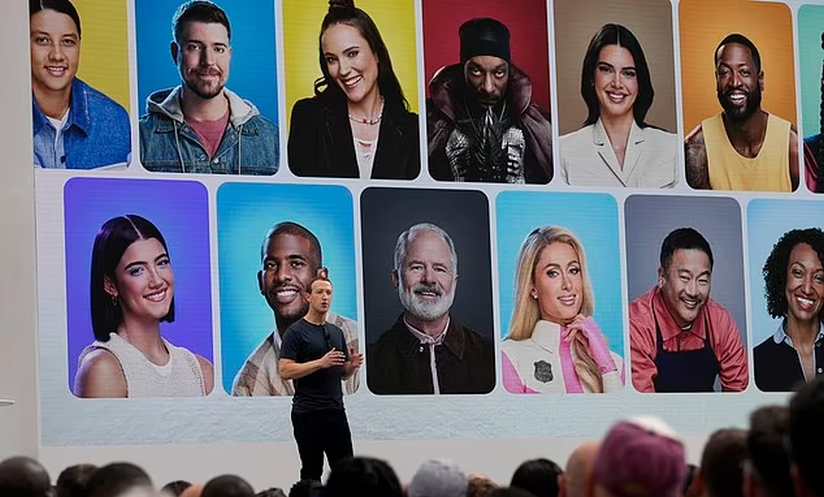AI Friends: Meta launches AI friends on Facebook and Instagram, blurring the line between authenticity and engagement

Meta is making a bold move with AI-generated profiles. The social media giant has announced plans to integrate these profiles and characters seamlessly across Facebook and other platforms as part of a broader engagement strategy.
These new profiles are more than just a novelty—they come with bios, profile pictures, and the capability to create and share content. This move aligns with Meta’s strategy to draw in younger users and maintain high engagement levels.
While many of these characters are currently private, Meta expects them to become a regular feature across its platforms in the years ahead.
Meta AI-Generated Profiles
In an interview with the Financial Times, Meta’s Vice President of Generative AI Connor Hayes said the n AI-generated profiles coexist with regular user accounts. These profiles will feature bios, profile pictures, and the ability to create and share content, offering a fresh layer of interaction on Meta’s platforms.
“We expect these AIs to actually, over time, exist on our platforms, kind of in the same way that accounts do,” Hayes told the Financial Times Thursday.
Since late last year, Meta has been refining its AI capabilities and rolling out new technologies across platforms like Facebook. Last summer, the company introduced trial tools for AI character creation, resulting in the development of hundreds of thousands of AI personas, marking a significant step in its AI strategy.
Meta’s rollout of AI-generated profiles started in July 2024 with AI Studio, a tool that lets users craft custom AI characters based on their interests. These profiles can manage messages and interact with followers on behalf of users, offering a new way to maintain a digital presence. Meta has also tapped into influencer culture, teaming up with well-known personalities to create AI characters that feel familiar and engaging.
Potential Risks of AI-Generated Profiles
But this innovation raises questions. While AI characters promise convenience and a personalized touch, critics wonder if they erode the authenticity of social media interactions. Are we embracing a new era of digital companions, or are we losing something real?
Meta’s efforts go beyond social profiles. The company is developing tools like text-to-video software that allows users to integrate themselves into AI-generated videos, opening new possibilities for content creation. Early trials have already churned out hundreds of thousands of AI characters, though most remain private for now.
“Without robust safeguards, platforms risk amplifying false narratives through these AI-driven accounts,” chief marketing officer at talent agency Billion Dollar Boy and former head of Meta’s creator innovations team Becky Owen told to the Financial Times.
These advancements aren’t without controversy. Experts warn that such technologies could be misused to spread false narratives or manipulate public opinion. To address these concerns, Meta has implemented measures to label AI-generated content clearly, aiming to maintain transparency and trust among users.
Some see this as more than just an engagement strategy. Meta might be gathering valuable data to fuel AI-driven NPCs (non-playable characters) for its virtual reality ambitions. If true, this move could have significant implications for the future of immersive social experiences.
Why It Matters
Meta’s push into AI profiles underscores a broader trend in tech: balancing enhanced user experience with the authenticity of interactions. For users, the key question is whether AI-driven profiles make platforms feel more dynamic or diminish the genuine nature of connections.
As these AI-generated profiles gain momentum, they challenge us to reflect on what we truly value in online engagement. Are these tools advancing digital interaction or compromising authenticity? It’s a question that Meta—and its users—will be navigating in the years ahead.





